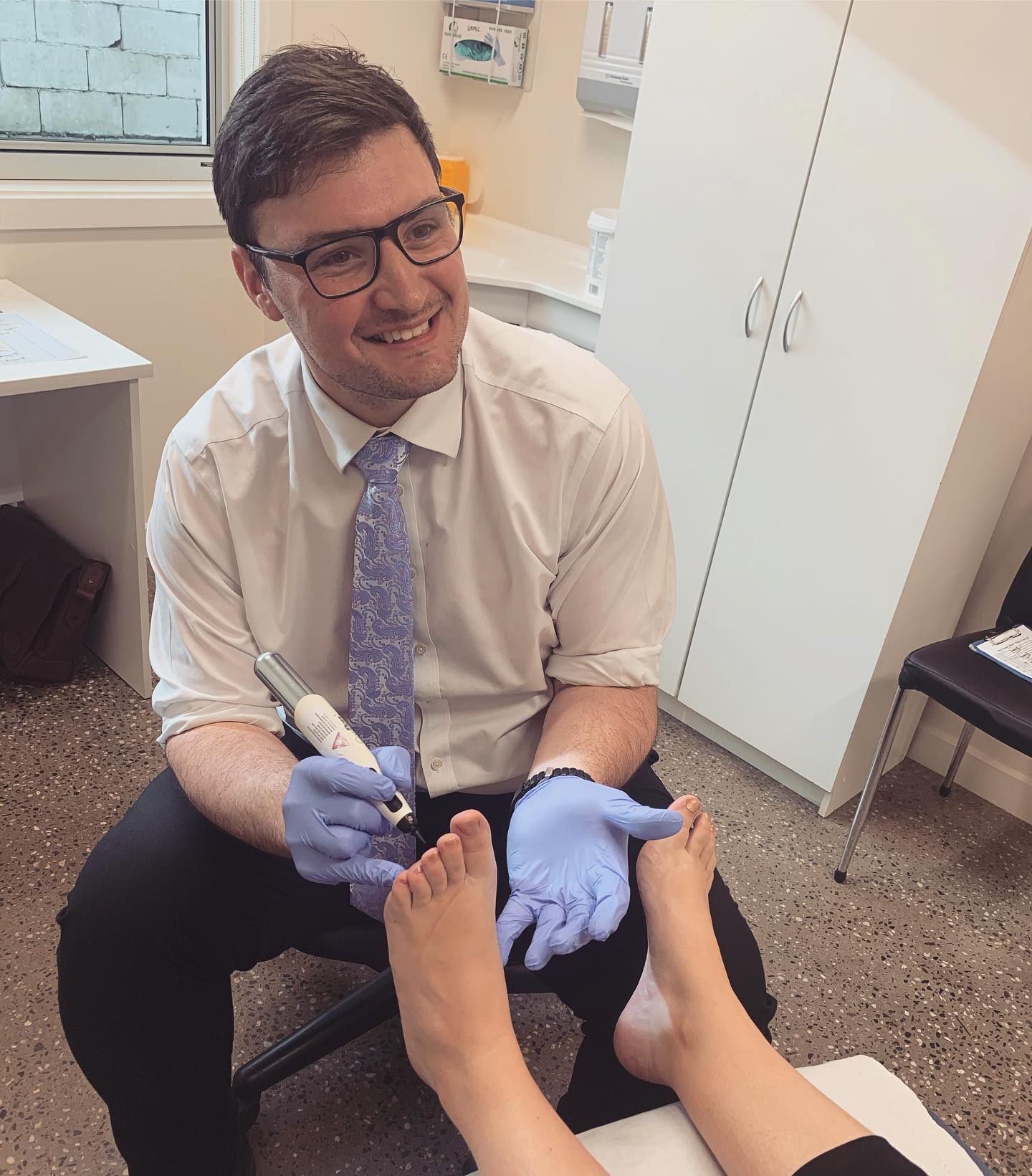Diabetic Foot Care Near Me Williams AZ
As we all know, diabetes is a chronic disease that affects millions of people worldwide. One of the most common complications associated with diabetes is foot problems. In fact, according to the American Diabetes Association, about 1 in 4 people with diabetes will develop foot problems at some point in their lives.
But what many people don’t realize is that regular check-ups and proper diabetic foot care are crucial in preventing serious complications. That’s why it is important to find diabetic foot care near Williams AZ, as early detection and treatment can make a significant difference in your overall health.
In this blog, we’ll explore the importance of regular check-ups for those with diabetes and how finding diabetic foot care near you can play a vital role in preventing serious complications. So, if you or a loved one have diabetes, keep reading to find out how regular check-ups and proper foot care can make all the difference in your health and well-being. Let’s dive in and learn more about this crucial aspect of diabetic care.
Understanding Diabetes and Its Impact on Feet
Diabetes, a chronic disease affecting millions worldwide, is characterized by insufficient insulin production or ineffective use, resulting in high blood glucose levels. This condition can have severe consequences, particularly for the feet.
One of the major complications of diabetes is diabetic neuropathy, wherein elevated glucose levels damage the nerves responsible for foot sensation. As a result, individuals may experience numbness or loss of feeling, making it challenging to detect injuries or infections. Even minor cuts or blisters can go unnoticed and become infected, potentially leading to serious complications like foot ulcers.
Additionally, diabetes affects blood vessel function in the feet, impairing proper circulation. Without adequate blood flow, wounds and infections struggle to heal, increasing the risk of amputation. Shockingly, individuals with diabetes are 10 times more likely to undergo lower limb amputations compared to those without the disease.
To mitigate these risks, individuals with diabetes must diligently monitor their feet for any signs of injury or infection. Seeking immediate medical attention for anything unusual is crucial. By proactively addressing foot health, individuals can minimize the potential complications associated with diabetes.

Diabetic Foot Care
The Risks and Complications of Diabetes on Feet
As mentioned earlier, diabetes can have a severe impact on foot health. Uncontrolled blood sugar levels can cause nerve damage, leading to diabetic neuropathy. But that’s not the only risk individuals with diabetes face; many other potential complications require close attention.
Some of the most common risks and complications of diabetes include:
- Foot ulcers: Due to nerve damage and reduced blood flow, even minor foot injuries can develop into ulcers, which are open sores that do not heal properly. If left untreated, these ulcers can become infected and potentially lead to amputation.
- Charcot Foot: This is a condition where the bones in the feet weaken and break due to nerve damage. It can cause severe deformities and make it challenging to walk.
- Poor circulation: High blood sugar levels can damage the blood vessels in the feet, leading to reduced blood flow. This can cause wounds or infections to heal slowly and increase the risk of amputation.
- Fungal infections: Diabetes compromises the immune system, making individuals more susceptible to fungal infections like athlete’s foot. These can be challenging to treat and can lead to other complications if left untreated.
- Amputation: As mentioned before, individuals with diabetes are at a higher risk of lower limb amputations. In some cases, this may be the only option to prevent the spread of infection and save a person’s life.
By understanding the potential risks and complications of diabetes on foot health, individuals can prioritize regular check-ups and proper foot care to prevent these issues from occurring. Let’s take a closer look at how diabetic foot care near you can help in this regard.
The Role of Regular Check-Ups in Managing Diabetes and Foot Health
Regular check-ups play a vital role in managing diabetes and maintaining foot health. By prioritizing these appointments, individuals can effectively monitor their blood sugar levels, identify potential complications, and take proactive steps to stay healthy. Here’s how regular check-ups can benefit you:
- Early detection: By attending regular check-ups, any issues with blood sugar levels or foot health can be detected early on. This allows for prompt treatment, minimizing the risk of serious complications down the line.
- Personalized care plan: During these appointments, healthcare professionals can create a personalized care plan tailored to your specific needs and concerns. They can offer recommendations for proper foot care, guide you in monitoring glucose levels, and help manage any other health conditions you may have.
- Education and empowerment: Regular check-ups provide an opportunity for you to learn more about diabetes and its impact on your feet. By understanding the disease better, you can take proactive steps to manage it effectively. Healthcare professionals can equip you with the knowledge and tools needed to stay in control of your health.
Referrals for specialized care: In some cases, you may require specialized foot care or treatment. Regular check-ups enable foot care professional to identify any potential issues and provide referrals to the appropriate specialists. This ensures that you receive the specialized care you need to maintain optimal foot health.
Remember, regular check-ups are not just about monitoring your health but also about taking charge of your overall well-being. By staying proactive and consistent with these appointments, you can minimize the risks and complications associated with diabetes. So, make it a priority to schedule regular check-ups, and invest in your long-term health and quality of life.

Professional Diabetic Foot Treatment
The Importance of Foot Care for Diabetics
Diabetes is a complex chronic disease that requires continual management and care. When it comes to foot health, this is especially true. Diabetic foot problems can lead to serious complications, as discussed above, making proper foot care an essential aspect of managing the disease.
Here are some key reasons why foot care is crucial for individuals with diabetes:
- Preventing complications: By regularly checking your feet, you can identify any issues early on and take prompt action to prevent them from worsening. This includes properly caring for foot injuries, managing infections, and seeking medical attention when necessary.
- Promoting overall health: Foot care is not just about preventing complications; it also plays a role in maintaining overall health. By keeping your feet clean and healthy, you can avoid discomfort and pain, improve mobility, and reduce the risk of other health issues like fungal infections or ingrown toenails.
- Empowering self-care: Individuals with diabetes are often encouraged to take an active role in managing their disease. Foot care is no exception. By prioritizing foot checks and proper care, individuals can feel empowered to take control of their health and well-being. This can lead to improved mental and emotional health as well
Foot care is an integral part of managing diabetes and promoting overall well-being. By understanding the risks and complications associated with the disease and prioritizing regular check-ups and proper foot care, individuals can minimize their impact on their feet and maintain optimal health.
Preventing Serious Complications through Early Detection
Regular diabetic foot check-ups are crucial to detecting and addressing potential issues early on, ensuring that they don’t escalate into serious complications that can significantly impact your quality of life. Let’s explore some common complications associated with diabetes and how regular check-ups can help prevent them:
- Peripheral neuropathy: This condition affects the nerves in your feet, resulting in numbness, tingling, and pain. By scheduling regular check-ups, healthcare professionals can identify this condition early and prevent its progression.
- Foot ulcers: Diabetes can slow down the healing process, making individuals more susceptible to foot ulcers that can lead to infection or even amputation. Through consistent monitoring, healthcare professionals can promptly treat ulcers and prevent further complications.
- Diabetic foot infections: Poor circulation and weakened immune systems put individuals with diabetes at a higher risk of developing foot infections. Regular foot treatments enable early detection of any signs of infection, allowing for timely treatment before it becomes severe.
- Charcot foot: Nerve damage can weaken the bones in the foot, increasing the risk of fractures. Regular check-ups aid in the early identification of this condition, preventing serious injuries.
- Gangrene: In severe cases, diabetes can result in gangrene, where tissue dies due to inadequate blood flow. Early detection through regular check-ups can minimize the need for amputation.
By prioritizing and attending regular diabetic foot check-ups, you can proactively prevent the development or progression of these complications. Remember, with proper care and management, you can continue to lead a healthy and active life with diabetes.

Foot Treatment
How Diabetic Foot Care Near You Can Help in Managing Diabetes
Seeking diabetic foot care is a crucial step in managing diabetes and preventing complications. Not only do regular check-ups play a vital role, but specialized medical professionals can provide additional support to maintain optimal foot health. Let’s explore the benefits of diabetic foot care:
- Thorough examinations: Diabetic foot care specialists conduct comprehensive exams to identify any issues or potential complications. They also provide valuable tips for proper foot care and recommend suitable footwear.
- Wound care: In the case of foot ulcers or other wounds, diabetic foot care specialists offer specialized treatment to promote healing and prevent infection. They can also guide you on managing wounds at home to minimize the risk of further complications.
- Custom orthotics: Individuals with diabetes may require personalized orthotics to provide extra support and cushioning to their feet. Diabetic foot care specialists can create custom orthotic inserts tailored to your unique foot shape and needs.
- Education and resources: Diabetic foot care specialists can educate you on managing your condition and provide resources for proper diet and exercise. By maintaining a healthy lifestyle, you can effectively manage your blood sugar levels and prevent complications.
- Emotional support: Living with diabetes can be challenging, both physically and mentally. Diabetic foot care specialists not only provide medical care but also offer emotional support and guidance to help you cope with the impact of the disease.
Effective diabetes management involves a holistic approach that includes regular check-ups and specialized foot care. By understanding the potential risks and taking proactive steps, you can maintain optimal foot health and enjoy a better quality of life.
Finding a Diabetic Foot Care Specialist Near You
If you have diabetes, finding a diabetic foot care specialist near you is crucial. They can provide the necessary medical support and guidance to effectively manage your condition. Here are some tips to help you find a suitable specialist:
- Seek recommendations: Start by asking your primary healthcare provider or other individuals with diabetes for recommendations. They may be able to suggest reputable specialists in your area.
- Research online: Take advantage of online resources to check reviews and ratings of diabetic foot care specialists in your area. This can give you an idea of the quality of care they provide.
- Verify qualifications and experience: When considering a specialist, make sure they have the proper qualifications and experience in managing diabetic foot conditions. This will ensure that you receive the best possible care.
- Consider location, cost, and accessibility: Take into account practical factors such as the location of the specialist’s clinic, the cost of treatment, and the accessibility of the facility. These factors can greatly impact your overall experience.
- Schedule an initial consultation: To get a feel for the specialist and their approach to care, schedule an initial consultation. This will allow you to discuss your concerns and assess whether they are the right fit for you.
It’s important to prioritize regular check-ups and invest in specialized foot care to maintain optimal health as a person with diabetes. By taking a proactive approach, you can minimize the risk of amputation and other serious complications associated with this chronic disease.
